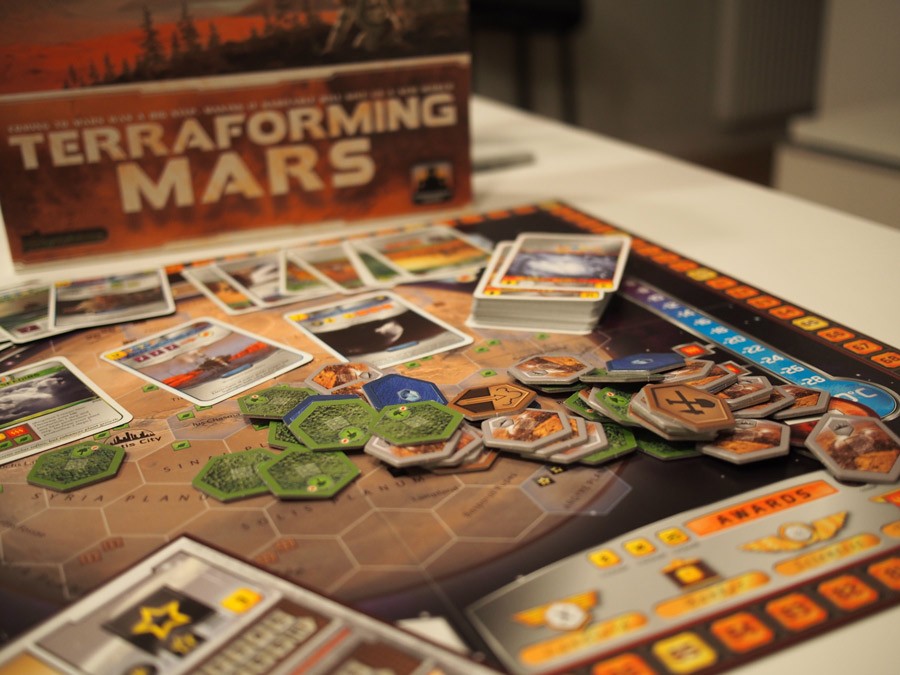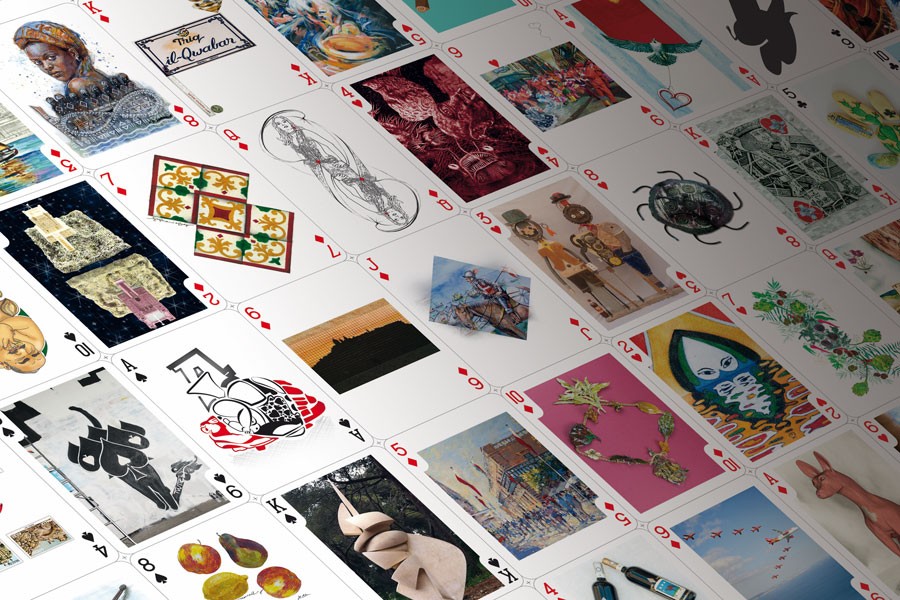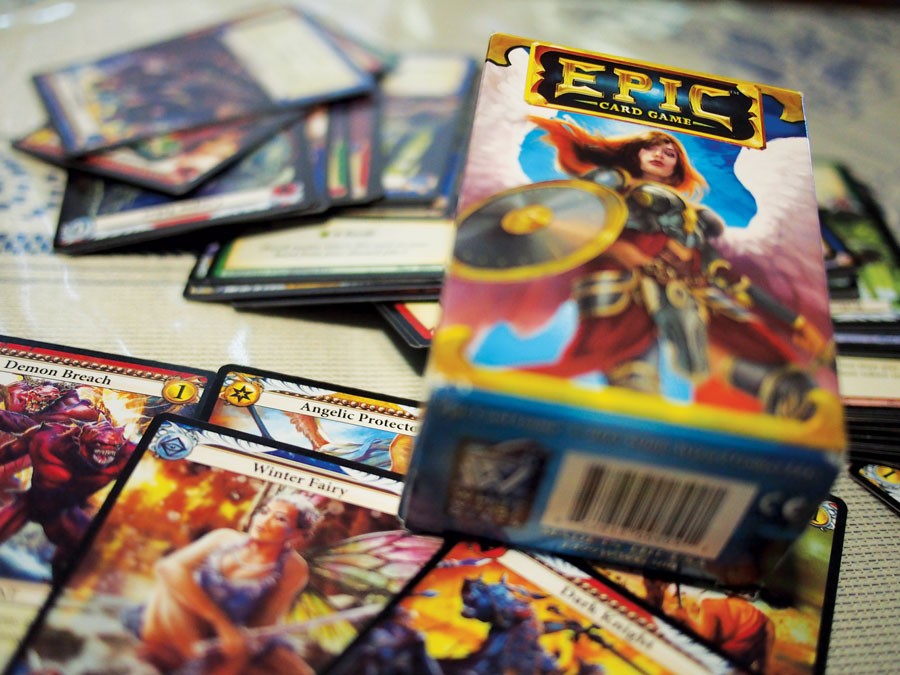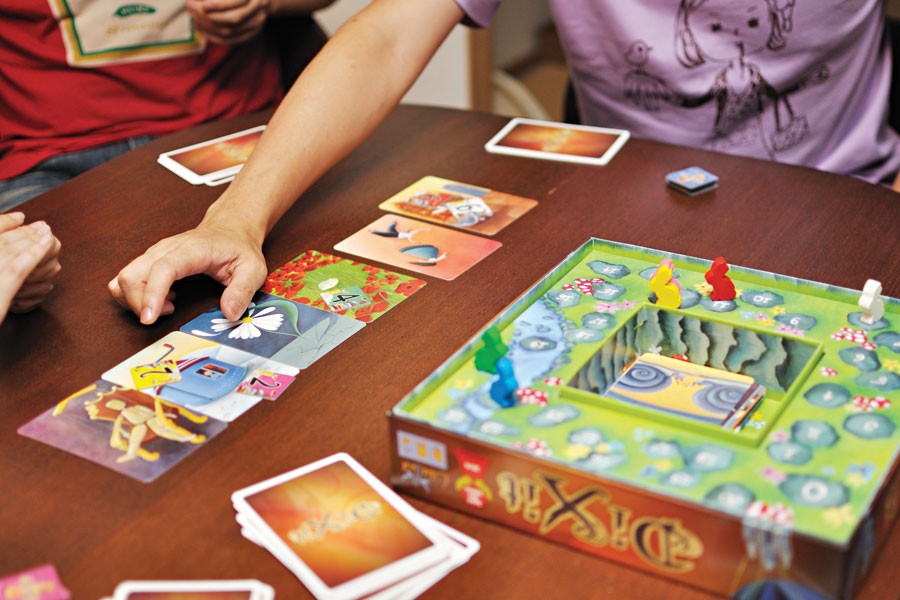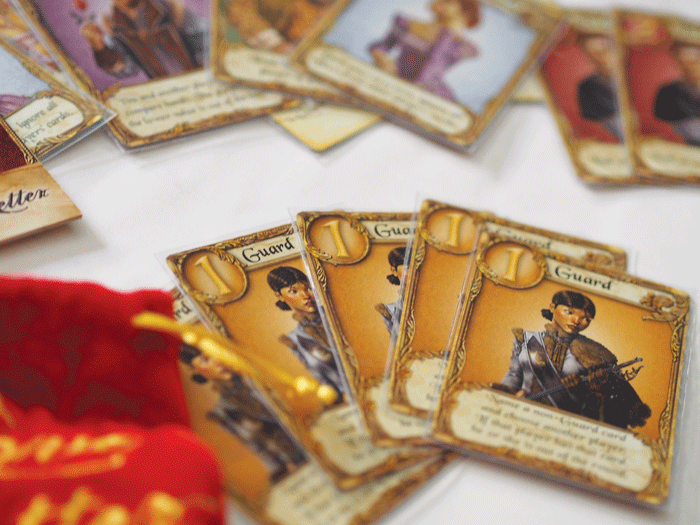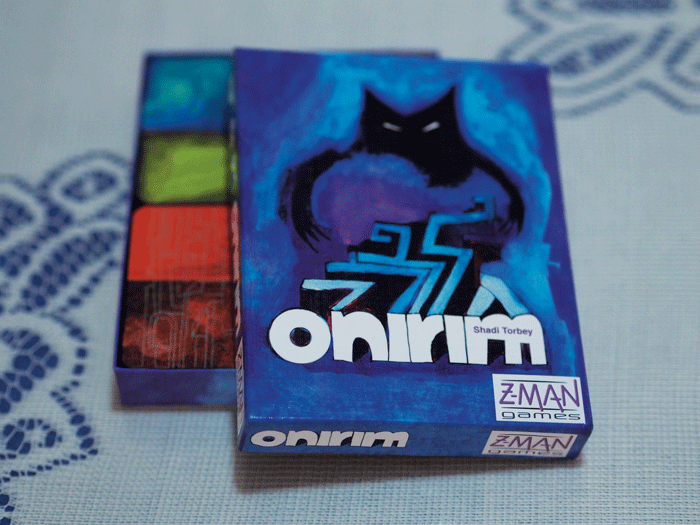Board Game review by David Chircop
Continue readingMalta Playing Arts
Card Game Review by David Chircop
Continue readingEpic card game
David Chircop reviews the card game Epic.
Continue readingDixit
Up until now I have mostly written reviews of cute unknown games. But some cute games manage to make the biggest of splashes, and find themselves on every Internet list, blog, and board game website. These games have the resonance to penetrate the minds of the most serious faced men, they stand out.
27th Passenger





I thought I hated deduction games. A friend of mine had purchased The Resistance and we played it till kingdom come. Everyone loved it, except me. It was too much a social exercise and too little a game. This is not necessarily bad, it just made the game extremely different with different groups, and it didn’t work with some of them. I assumed that this was true for all deduction games; 27th Passenger proved me wrong. 27th Passenger is about a group of assassins on a train. They all want to kill each other, but not the civilians. Of course, all players have a disguise ranging from a tough gangster to a sweeter schoolgirl.Continue reading
Haggis


Love Letter
The Microgame is a buzzword that has exploded over the last year in the board game community. Microgames are video game mini-games but analog and a lot more awesome. Love Letter is the microgame that popularised the format—Kanai’s 16-card wonder.
Love Letter was not the first microgame, it wasn’t even Kanai’s first microgame. R, another game of his was a popular title which you could buy by emailing the designer. He would then mail you an envelope with the cards in it, which was the board game itself. Love Letter is a spiritual successor to ‘R’, and the first of his works to have an international distribution.
In Love Letter you are trying to deliver the proverbial letter to the princess. You do this by gaining the favour of her closest friends. The deck is made up of these people, all having a number. The person who holds the card with the highest number at the end of the round, or the last person standing, wins.
In the game you always keep one card in your hand, and at each turn you draw a card and choose one of the two to discard. Each card though, has a specific ability, which activates as soon as you discard it. For example, if you play a Guard, you have the opportunity to try to guess another player’s card. If you do, that player is out. The Countess for example, cannot be caught with the Prince or the King (you must discard her if she does). This would mean fornication. The Priest can see another player’s card, since this constitutes confession, and the Baron can kick out anyone of a lesser number than him due to politics.
The game takes a little bit of getting used to. It is quite different from other mainstream games but I have not had so much fun with cards since I first found money in birthday cards.
With almost infinite replayability, a price point of around €9, extreme portability, and tight, nail biting moments, Love Letter is a definite buy. There is very little chance of going wrong. Five Stars.


Onirim
Solo board games are a funny business. First of all, nobody can catch you cheating. The temptation of closing an eye to a few little mistakes or ‘forgetting’ a rule are alluring. Second, you have nobody to rub the wrong way when you make a good move. Third, there’s nobody to beat. Board games initially strike us as a multi-player group affair, but solo games do exist. We have all played solitaire.
Onirim is a one-player card game. Although two people can play co-operatively I like it best solo. In Onirim you play as a ‘Dreamwalker’: a person stuck in a dream trying to find his way out before he is consumed by his own nightmares. To escape you must assemble a total of eight doors before the deck runs out. If it does you’re in trouble and stuck forever (till the next game).
By playing cards you move from room to room inside a labyrinth. When you manage to play three rooms of the same colour consecutively, a door of that colour ‘appears’, as in, you search for one inside the deck.
‘Hah, sounds easy!’ you might say. ‘Hah, you’re wrong’. There are nightmare cards, and nightmare cards are… horrible. You can only play one card per turn, and you might have a cunning plan set up cheerfully in your hand, but then a ‘nightmare’ happens, and you need to discard all your cards, and start over. Thankfully, the ‘nightmares’ can be dodged. Prophecies allow you to see the future, while keys negate a ‘nightmare’s’ effects.
I like Onirim. It is different, has gorgeous art, and is wonderfully balanced. The only downside is that it is out of print. But worry not, Dreamwalker! Onirim will be reprinted this year and you can get your dreamy paws on it… soon enough.
This article forms part of The Gaming Issue

